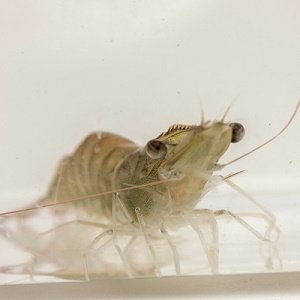The shrimp industry is continually threatened by emerging diseases, such as Acute Hepatopancreatic Necrosis Disease (AHPND). This disease is a severe condition with a high mortality rate that impacts the shrimp farming industry.
AHPND is caused by specific strains of Vibrio parahaemolyticus (Vp) carrying a plasmid that encodes the PirABVp toxins. AHPND wreaks havoc on shrimp populations, but its precise relationship with gut microbiota and its impact on shrimp health remain a mystery.
A study conducted by researchers at the National Cheng Kung University delves into the intricate world of shrimp gut microbiota to understand how it responds to Vibrio parahaemolyticus strains that cause and do not cause AHPND.
The Shrimp’s microbial ecosystem
The shrimp’s gut is a complex and dynamic microbial ecosystem. It hosts a multitude of microorganisms that play crucial roles in digestion, nutrient absorption, and immune function.
Alterations in this delicate balance can have profound consequences for the shrimp’s overall health and susceptibility to diseases.
Exploring temporal changes
To unravel the mysteries surrounding AHPND and gut microbiota, we conducted a comprehensive study. We analyzed 168 gut samples collected from shrimp exposed to three different treatments at seven distinct time points, with eight individuals per set.
This allowed us to capture the temporal changes in shrimp gut microbiota in response to Vibrio parahaemolyticus infections, comparing them to non-infected controls as a reference point.
Key findings
The research results revealed several critical findings:
Decrease in Species Diversity: We observed a decrease in species diversity within the gut bacterial communities of shrimp infected with Vibrio parahaemolyticus, regardless of the strain’s pathogenicity.
Stay Always Informed
Join our communities to instantly receive the most important news, reports, and analysis from the aquaculture industry.
- Distinct Taxonomic Changes: The composition of gut bacterial communities significantly differed between shrimp infected with Vibrio parahaemolyticus strains that cause AHPND and those that do not.
- Rapid Compositional Changes: Short-term changes in gut microbiota (within 6 hours) were detected only in shrimp infected with Vibrio parahaemolyticus strains that cause AHPND, highlighting the acute response to pathogenic invaders.
- Enrichment of Specific Genera: The gut microbiota of shrimp infected with Vibrio parahaemolyticus strains that cause AHPND showed an enrichment of the genera Photobacterium and Vibrio, along with a decline in Candidatus Bacilliplasma. These changes may be associated with AHPND pathogenesis.
- Functional Predictions: Our study suggested that compositional changes in the gut microbiota may lead to a loss of normal metabolic functions, potentially impacting shrimp health.
Implications for AHPND pathogenesis
These findings provide new insights into the relationship between gut microbiota and AHPND. The distinctive features of community dynamics in shrimp gut microbiota in response to pathogenic versus non-pathogenic Vibrio infections shed light on potential underlying mechanisms of AHPND.
Conclusion
As we continue to unlock the secrets of shrimp gut microbiota, we move closer to a comprehensive understanding of AHPND pathogenesis. This research not only contributes to the knowledge base of shrimp health but also offers potential avenues for developing strategies to mitigate the impact of AHPND in the shrimp farming industry.
The interplay between shrimp gut microbiota and invading pathogens is a fascinating area of study with far-reaching implications for sustainable shrimp farming and food security.
Contact
Hsiao-Pei Lu
Department of Biotechnology and Bioindustry Sciences
College of Biosciences and Biotechnology
National Cheng Kung University
Tainan, Taiwan
Email: hplu@gs.ncku.edu.tw
Reference (open access)
Chang, Y. T., Ko, H. T., Wu, P. L., Kumar, R., Wang, H. C., & Lu, H. P. (2023). Gut microbiota of Pacific white shrimp (Litopenaeus vannamei) exhibits distinct responses to pathogenic and non-pathogenic Vibrio parahaemolyticus. Microbiology Spectrum, e01180-23.
Editor at the digital magazine AquaHoy. He holds a degree in Aquaculture Biology from the National University of Santa (UNS) and a Master’s degree in Science and Innovation Management from the Polytechnic University of Valencia, with postgraduate diplomas in Business Innovation and Innovation Management. He possesses extensive experience in the aquaculture and fisheries sector, having led the Fisheries Innovation Unit of the National Program for Innovation in Fisheries and Aquaculture (PNIPA). He has served as a senior consultant in technology watch, an innovation project formulator and advisor, and a lecturer at UNS. He is a member of the Peruvian College of Biologists and was recognized by the World Aquaculture Society (WAS) in 2016 for his contribution to aquaculture.







